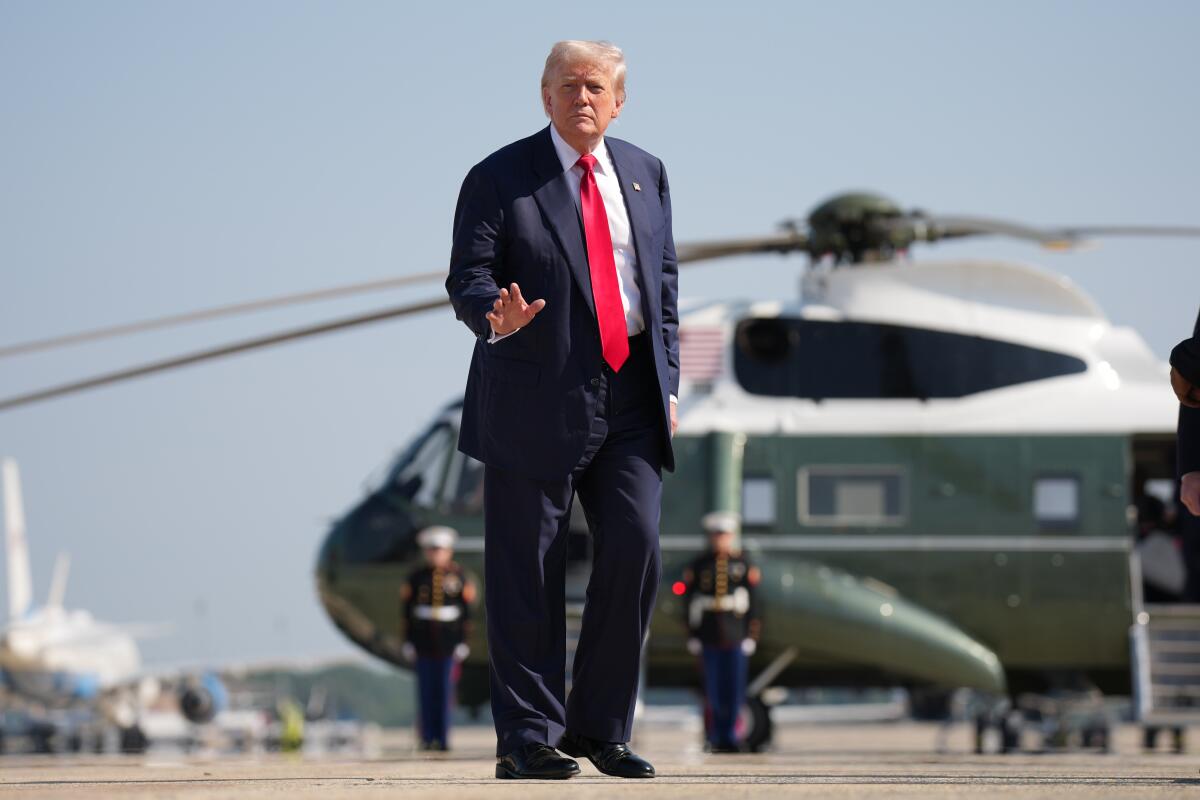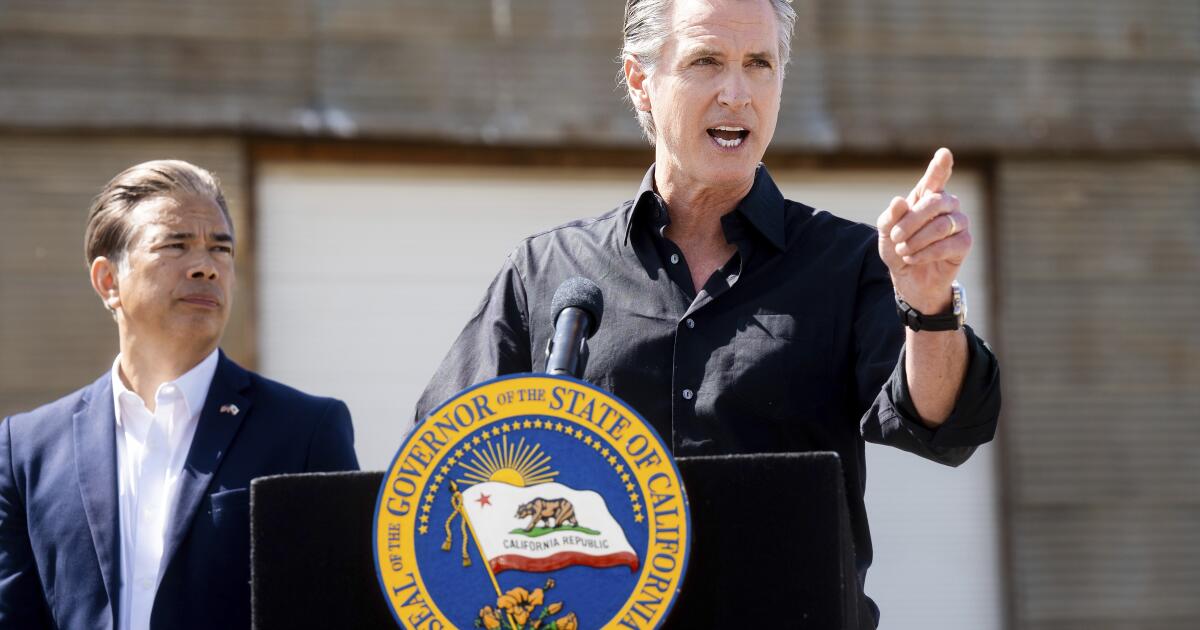José Antonio Rodríguez held a bouquet of flowers in his trembling hands.
It had been nearly a quarter of a century since he had left his family behind in Mexico to seek work in California. In all those years, he hadn’t seen his parents once.
They kept in touch as best they could, but letters took months to cross the border, and his father never was one for phone calls. Visits were impossible: José was undocumented, and his parents lacked visas to come to the U.S.
Now, after years of separation, they were about to be reunited. And José’s stomach was in knots.
He had been a young man of 20 when he left home, skinny and full of ambition. Now he was 44, thicker around the middle, his hair thinning at the temples.
Would his parents recognize him? Would he recognize them? What would they think of his life?
José had spent weeks preparing for this moment, cleaning his trailer in the Inland Empire from top to bottom and clearing the weeds from his yard. He bought new pillows to set on his bed, which he would give to his parents, taking the couch.
Finally, the moment was almost here.
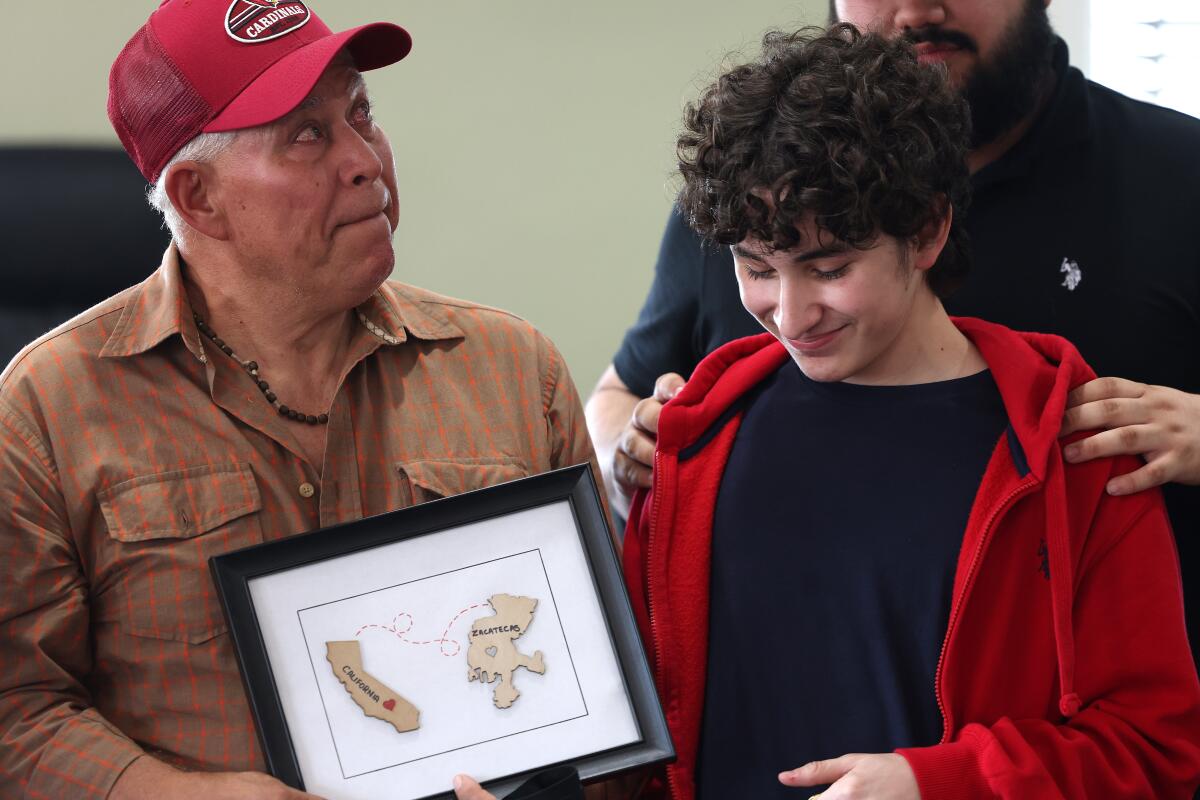
Gerardo Villarreal Salazar, 70, left, is reunited with his grandson Alejandro Rojas, 17.
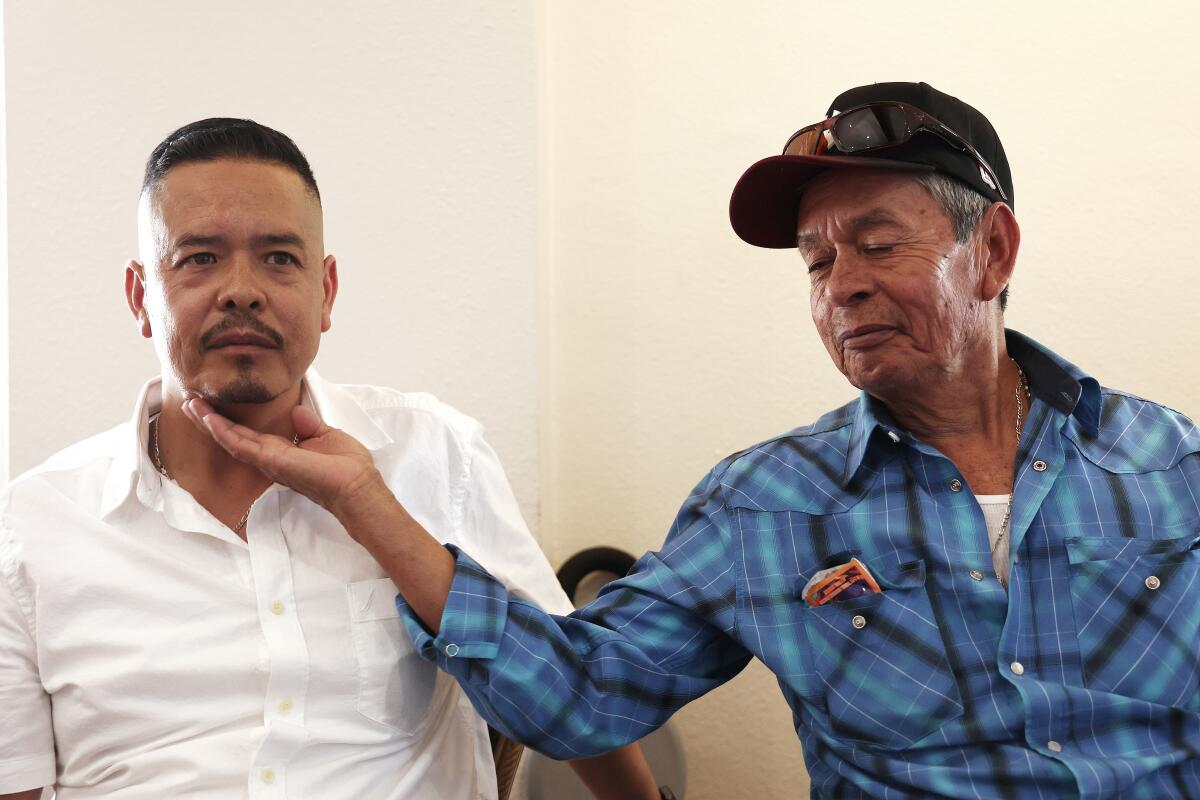
Leobardo Arellano, 39, left, and his father, José Manuel Arellano Cardona, 70, are reunited after 24 years.
Officials in Mexico’s Zacatecas state had helped his mother and father apply for documents that allow Mexican citizens to enter the U.S. for temporary visits as part of a novel program that brings elderly parents of undocumented workers to the United States. Many others had their visa applications rejected, but theirs were approved.
They had packed their suitcases to the brim with local sweets and traveled 24 hours by bus along with four other parents of U.S. immigrants. Any minute now, they would be pulling up at the East Los Angeles event hall where José waited along with other immigrants who hadn’t seen their families in decades.
José, who wore a gray polo shirt and new jeans, thought about all the time that had passed. The lonely nights during Christmas season, when he longed for the taste of his mother’s cooking. All the times he could have used his father’s advice.
His plan had been to stay in the U.S. a few years, save up some money and return home to begin his life.
But life doesn’t wait. Before he knew it, decades had passed and José had built community and a career in carpentry in California.
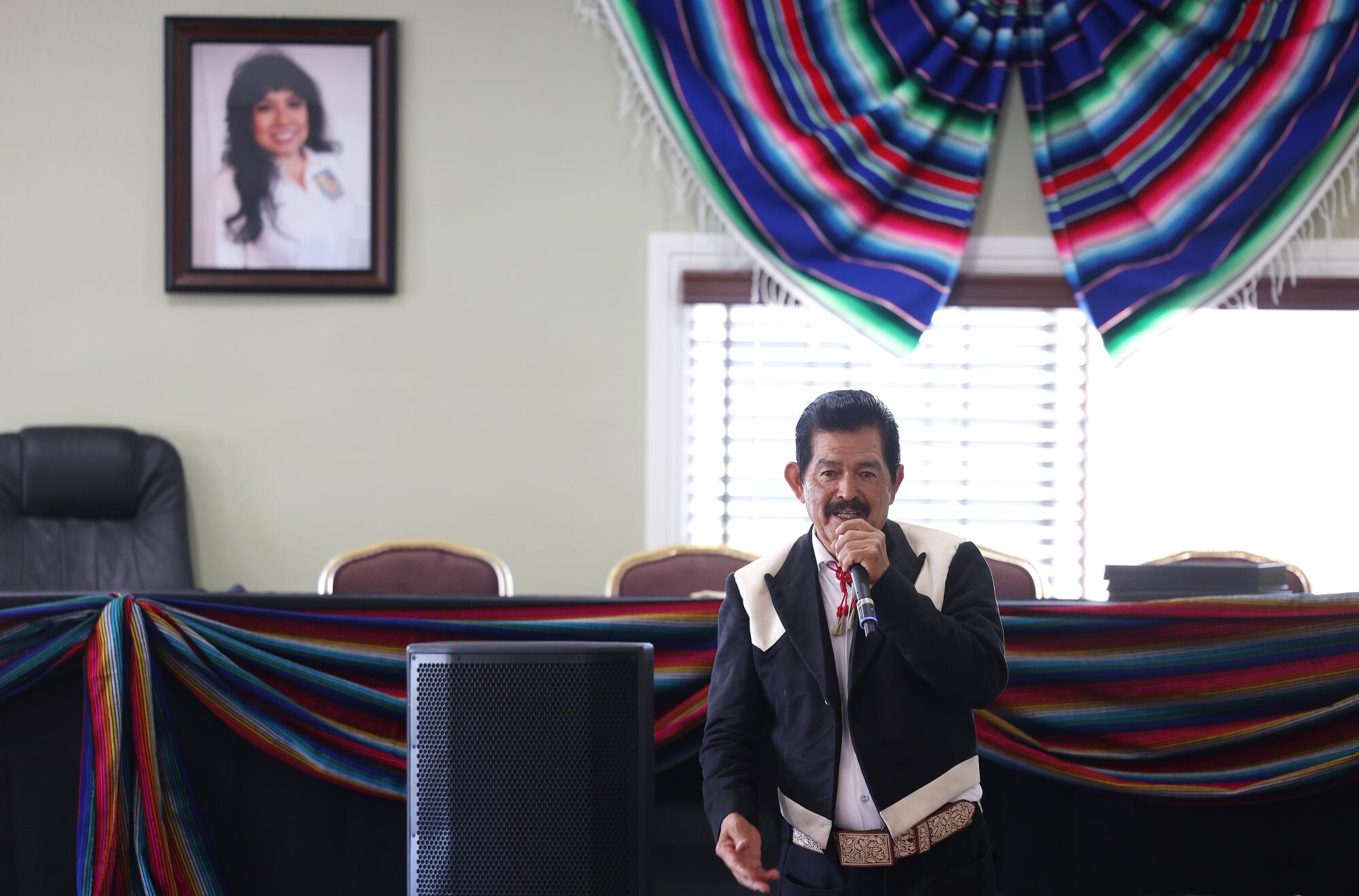
Juan Mascorro sings for the reunited families.
He sent tens of thousands of dollars to Mexico: to fund improvements on his parents’ house, to buy machines for the family butcher shop. He sent his contractor brother money to build a two-bedroom house where José hopes to retire one day.
His mother, who likes talking on the phone, kept him informed on all the doings in town. The construction of a new bridge. The marriages, births, deaths and divorces. The creep of violence as drug cartels brought their wars to Zacatecas.
And then one day, a near-tragedy. José’s father, jovial, strong, always cracking jokes, landed in the hospital with a heart that doctors said was failing. He languished there six months on the brink of death.
But he lived. And when he got out, he declared that he wanted to see his eldest son.
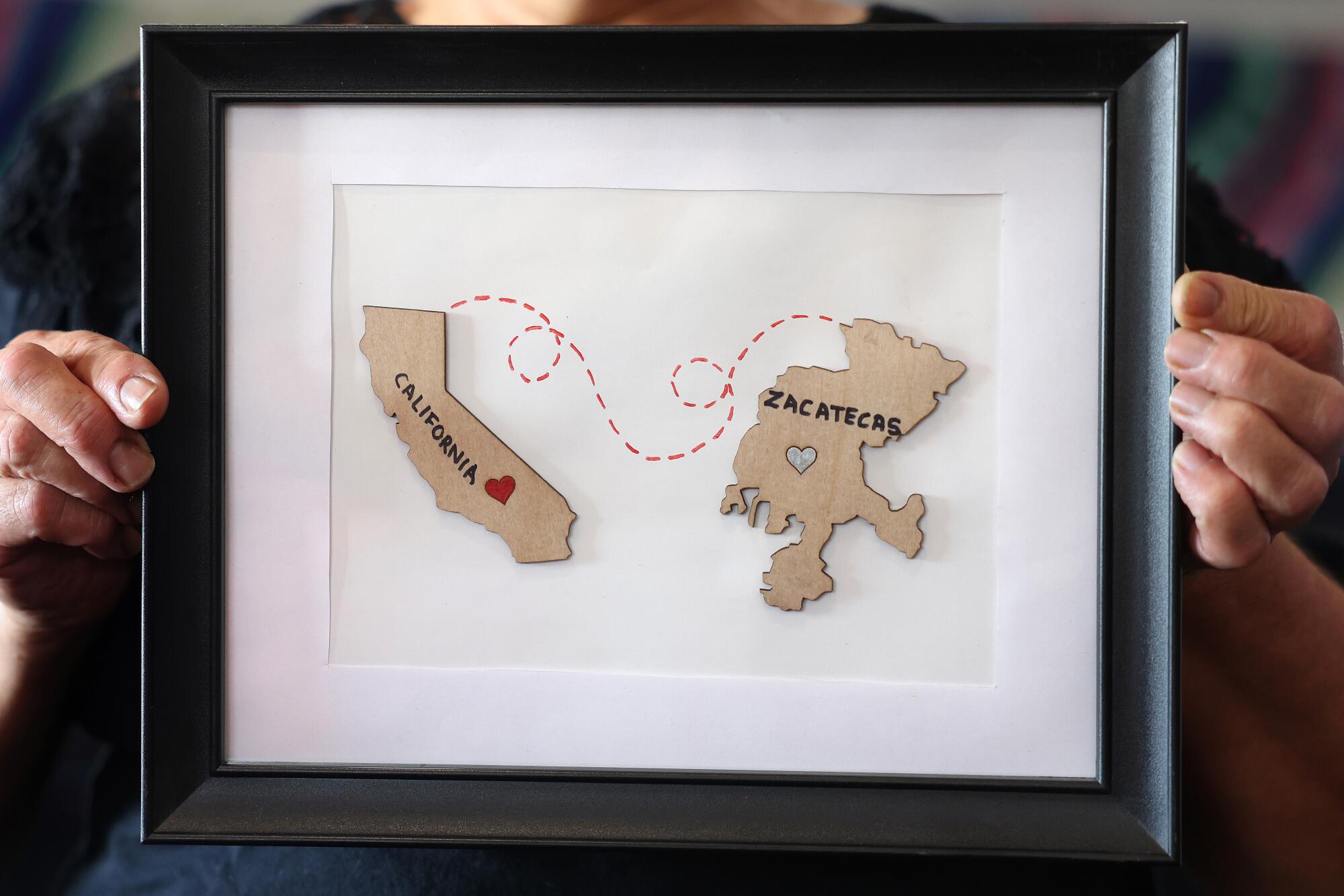
A framed artwork depicting the states of California and Zacatecas is a gift for families being reunited.
A full third of people born in Zacatecas live in the U.S. Migration is so common, the state has an agency tasked with attending to the needs of Zacatecanos living abroad. It has been helping elderly Mexicans get visas to visit family north of the border for years.
The state tried to get some 25 people visas this year. But the United States, now led by a president who has vilified immigrants, approved only six.
José had a childhood friend, Horacio Zapata, who also migrated to the U.S. and who hasn’t seen his father in 30 years. Horacio’s father also applied for a visa, but he didn’t make the cut.
Horacio was crestfallen. A few years back, his mother died in Mexico. He had spent his life working to help get her out of poverty, and then never had a chance to say goodbye. He often thought about what he would give to share one last hug with her. Everything. He would give everything.
He and his wife had come with José to offer moral support. He put his arm around his friend, whose voice shook with nerves.
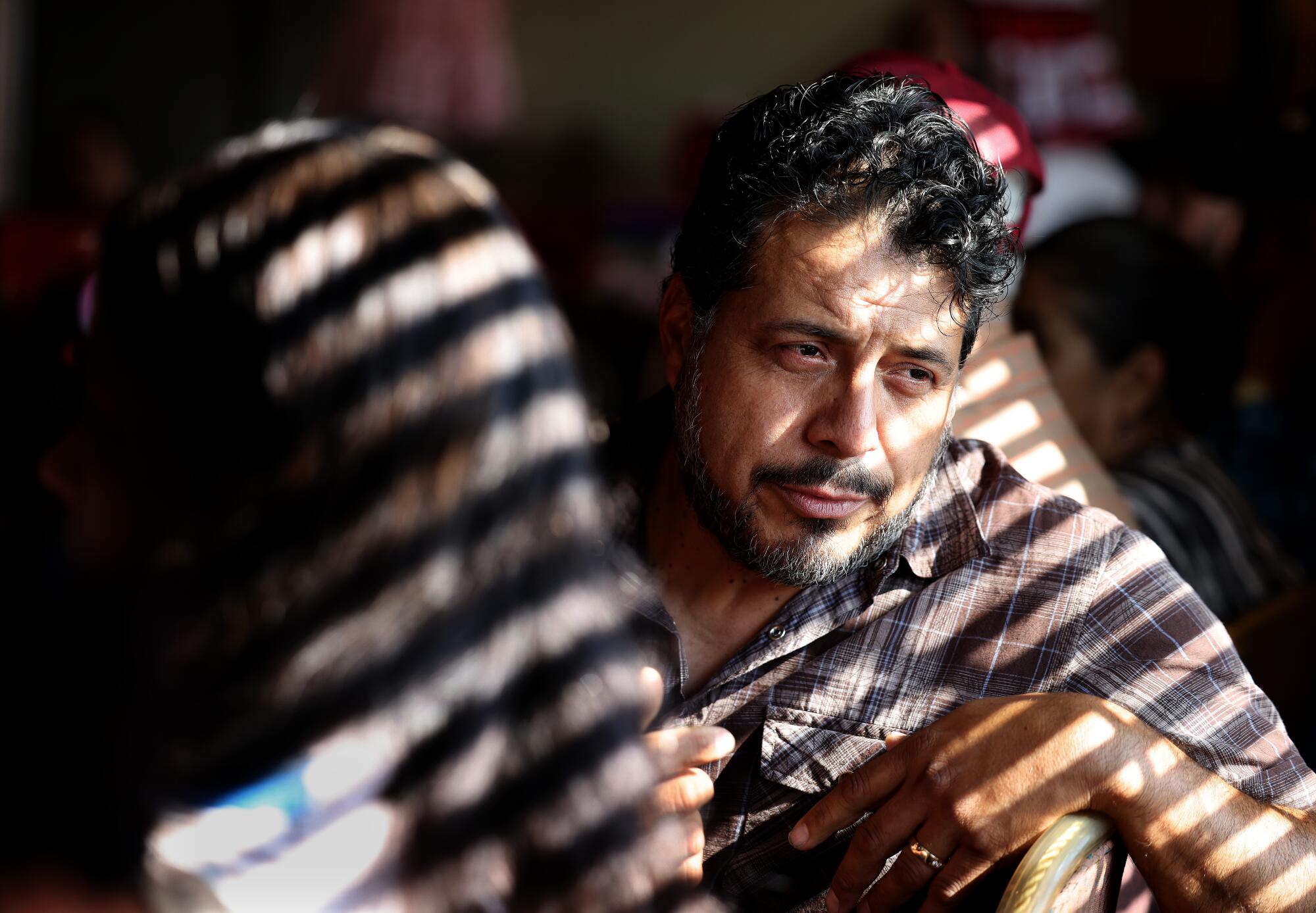
Horacio Zapata, 48, hoped his father would be able to come to Los Angeles through the reunion program, but his visa request was denied.
East L.A. was normally bustling, filled with vendors hawking fruit, flowers and tacos. But on this hot August afternoon, as a car pulled up outside the event hall to deposit José’s parents and the other elderly travelers, the streets were eerily quiet.
Since federal agents had descended on California, apprehending gardeners, day laborers and car wash workers en masse, residents in immigrant-heavy pockets like this one had mostly stayed inside.
The thought crossed José’s mind: What if immigration agents raided the reunion event? But there was no way he was going to miss it.
Suddenly, the director of the Federation of Zacatecas Hometown Assns. of Southern California, which was hosting the reunion, asked José to rise. Slowly, his parents walked in.
Of course they recognized one another. His first thought: How small they both seemed.
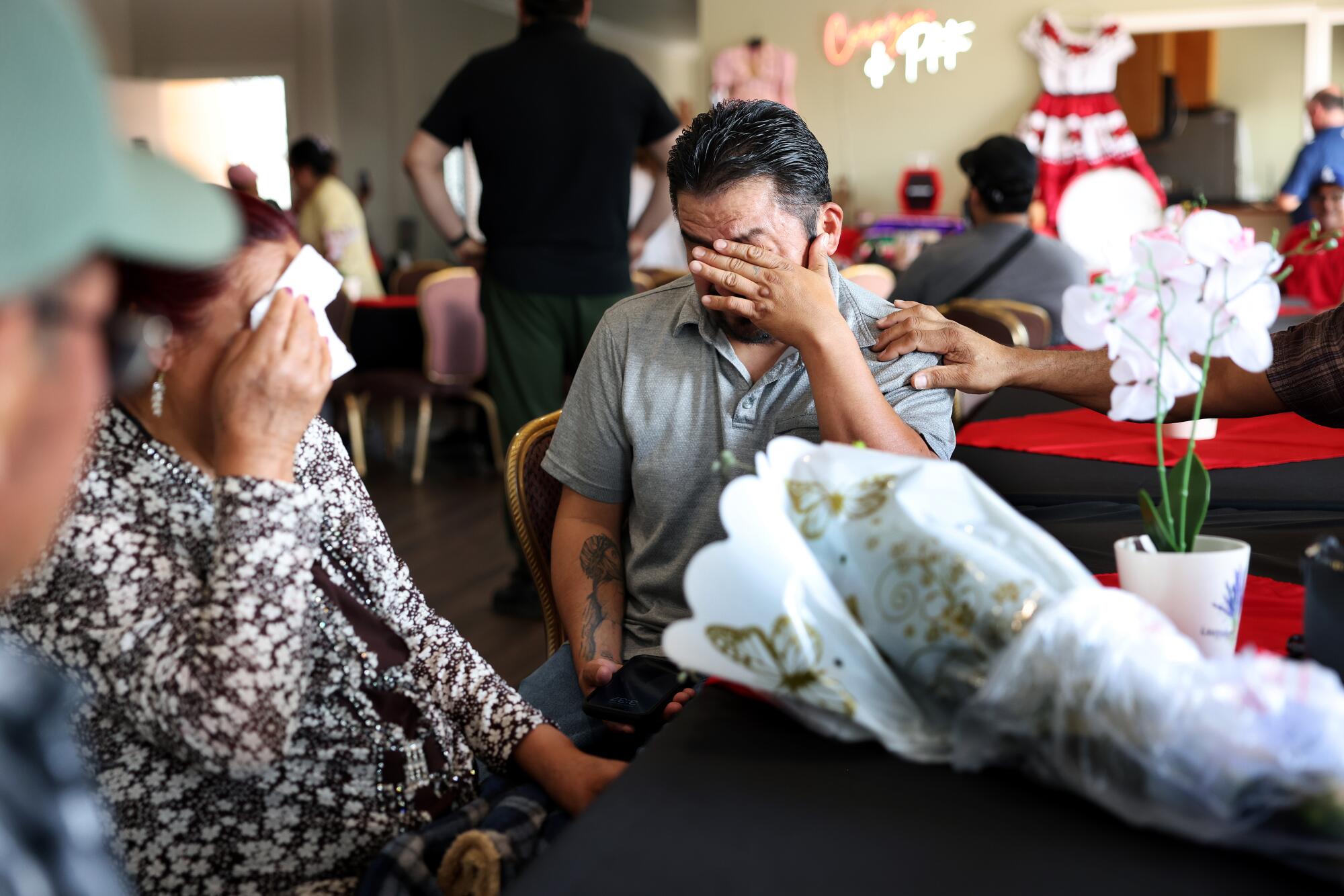
José Antonio Rodríguez and his mother, Juana Contreras Sánchez, wipe tears from their eyes after being reunited.
José gathered his mother in an embrace. He handed her the flowers. And then he gripped his father tightly.
This is a miracle, his father whispered. He’d asked the Virgin for this.
His father, whose heart condition persists, was fatigued from the long journey. They all took seats. His father put his head down on the table and sobbed. José stared at the ground, sniffling, pulling up his shirt to wipe away tears.
A mariachi singer performed a few songs, too loudly. Plates of food appeared. José and his parents picked at it, mostly in silence.
At the next table, José Manuel Arellano Cardona, 70, addressed his middle-aged son as muchachito — little boy.
In the coming days, José and his parents would relax into one another’s company, go shopping, attend church. Most evenings, they would stay up past midnight talking.

José Antonio Rodríguez holds a bouquet of flowers for his mother and father.
Eventually, the parents would head back to Zacatecas because of the limit on their visas.
But for now, they were together, and eager to see José’s home. He took them by the arms as he guided them out into the California sun.

